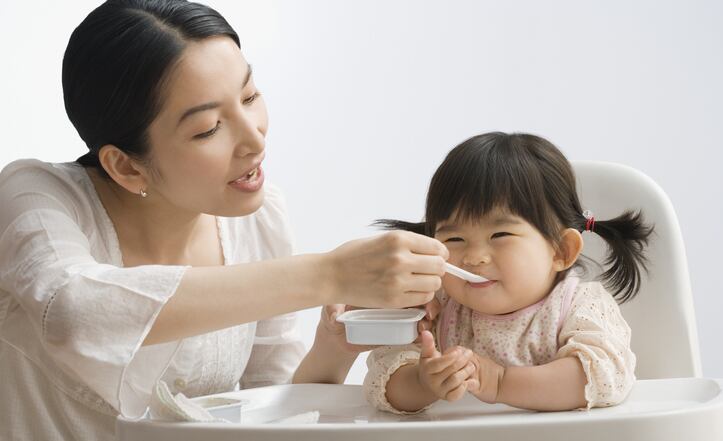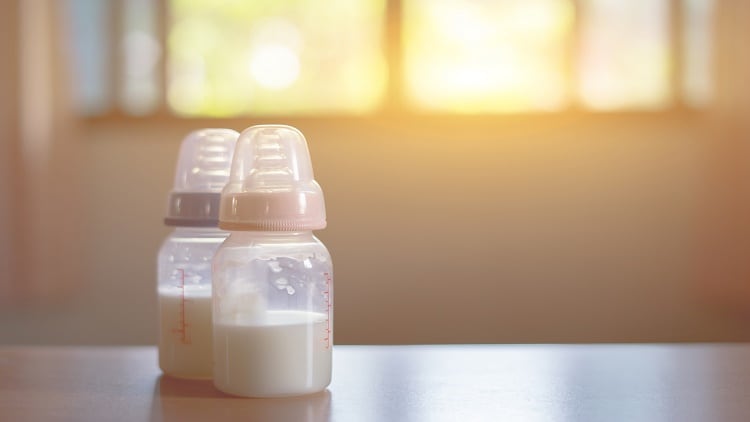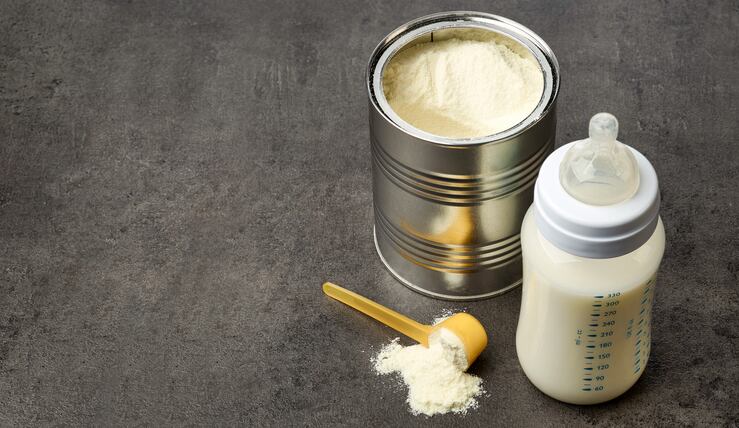An example is The a2 milk Company. Its China label infant formula – a2 Zhi Chu (至初) – was sold in over 22,800 mother-and-baby stores as of June 2021, pushing sales 15.4 per cent yoy higher to NZD$389.9m (US$270.6m).
In the same period last year, its products were sold in 18,200 stores.
“The strategic importance and size of the channel, and the strong resonance the brand has with consumers, means the mother and baby store channel remains the Company’s biggest opportunity to gain market share,” the company said in its FY2021 financial report.
At the same time, it said that it was looking at gaining share in China’s local online channels, on the back of the company's losses from its CBEC and daigou operations.
For foreign firms, the expansion of infant nutrition products into mother and baby stores is especially important if they wish to grow their presence in the lower tier cities.
Even major China e-commerce platform JD.com is pursing omnichannel development.
Brick-and-mortar stores remain the mainstream for many customers, especially in the lower-tier cities, said Longwu Jiang, head of the mother and baby business unit under JD Super, JD.com’s online supermarket.
“There are over 20,000 mother and baby product stores across the country. If you know the owner of a store in your neighborhood very well, like how many children he has, and which school his son goes to, would you prefer to buy things at this store or from some strangers online?
“Trust is the key. And on this point, JD has great potential to grow the market share both online and offline driven by the company’s omnichannel development,” Jiang said in a report published last November.
Lower-tier cities are also more attractive markets due to higher birth rates.
“Chinese consumers increasingly demand an omnichannel experience, meaning they want more than to be sold to online.
“In-store pick-up of online orders, QR code scanning of products to reveal more information, and self-check-out are the most widely adopted digital retail concepts in China,” said a McKinsey report on the China market.
The following are recent examples on how a number of Australian infant nutrition firms are adopting omnichannel growth.
Bubs
For infant formula firm Bubs, it is establishing a wholly-owned China based subsidiary to replace its joint venture with Beingmate and has redirected marketing investment to support local trade and social commerce.
Its goods will be sold online-to-offline (O2O), covering mother and baby stores – which do not require SAMR registration for English label products, as well as livestreaming e-commerce, social commerce, and top-tier e-commerce platforms Tmall Global and JD.com.
“China’s routes to market now omnichannel, with CBEC, daigou, O2O and general trade merging into one via online sales, livestreaming, and social selling.
“The traditional daigou and personal shopper gift store model is now replaced by sustainable, more transparent and professional corporate daigou with integrated e-commerce and omni-channel model connecting directly with consumers, supported by centralised warehousing in China and Australia,” the company said in its FY21 annual report.
In FY21, the company’s gross revenue was down 24 per cent yoy to AUD$46.8m (US$34.6m). Loss after tax was AUD$74.7m (US$55.3m) – almost a 10-fold jump from a year ago.
CEO Kristy Carr attributed the decline to international border closures and a subdued daigou sales.
In FY21, China contributed 27 per cent of the total revenue. Australia remains the largest market with 52 per cent contribution, while international markets such as South East Asia, brought in 21 per cent of the revenue.
Forbidden Foods
Forbidden Foods, which sells healthy foods, including walnut oil fortified with DHA, announced on August 31 that it has ventured into offline operations in China, with its presence in 10,000 stores in sight.
This was enabled through an exclusive distribution agreement with China-based Orange Group, which currently services over 10,000 stores in Northern and Central China through its trading arm, Panda Trading. The group also works with top FMCG brands such as Yili, Mengniu Dairy, Red Bull, and infant formula brand Junlebao.
The agreement will focus on distributing FUNCH range of infant and toddler and health and nutrition products.
The FUNCH range consists of walnut oil and macadamia oil fortified with algal DHA in either 50ml dropper format or a 250ml bottle format. The oil could be added to cereals, cooked grains, salad.
The range was in fact, formulated based on market insights from Alibaba.
“After trialling a smaller order in June which has since made its way onto shelves, we have now received a second purchase order (worth AUD$70k, US$51k) from Orange Group, which includes our most recently launched lines of Australian made edible oils boosted with DHA omega-3,” co-founder and chief operating officer Jarrod Milani said.
The firm first entered China’s CBEC market via its flagship Tmall store in the middle of this year. Its products are also sold online on Kaola and JD.com.
It reported a yoy revenue growth of 2.1 per cent to AUD$4.2 (US$3.1m), with loss after tax up 46.9 per cent to AUD$3.5m (US$2.6m) – due to restrictions and lockdowns impacting revenue in Australia and New Zealand.
Nuchev
Goat milk specialist, known for its flagship brand Oli6, said in its annual financial report released last month that “achieving access to China offline is still a focus.”
“The company remains focused on pursuing options to achieve registration with the State Administration of Market Regulation (SAMR) to sell Chinese specification Oli6 product in the offline environment in China.
“However, we acknowledge this is unlikely to be achieved via an Australian manufacturer,” it said.
The company said net revenue in FY21 was down 39 per cent to AUD$10.9m (US$8,07m), loss after tax also grew 37 per cent to AUD$13.2m (US$9.8m), due to contraction in the daigou trade.
It observed a rapid transition in China, where O2O and CBEC were growing.
The firm, which operates a Tmall flagship CBEC store, said revenue via CBEC was up 13 per cent.
Jatcorp
Jatcorp, on the other hand, said that the presence of products in offline stores would drive online sales.
The firm is known for brands such as Neurio – a line of milk powder for children, pregnant and lactating women, and middle-aged consumers, children milk powder brand Abbeyard, and Moroka – a brand focusing on milk powder with lactoferrin.
The opening of its Shanghai Maternity and Infant Boutique, which has been delayed due to lockdowns and regulatory issues in China, is expected to open in October 2021.
“The store will assist in driving consumers to JAT’s online China sales platform to be established and operated by JAT’s Chinese subsidiary – Hangzhou JAT,” the company said.
In FY2021, its revenue was down 64.75 per cent to AUD$20.95m (US$15.5m), loss after tax was AUD$21.1m (US$15.6), down 20.78 per cent, with COVID-19 lockdowns, closed daigou stores, border closures, international travel ban, and political tension between Australia and China cited as key factors.
At the same time, the company said it would rebuild its daigou sales channel as Australia opened its borders to international students and visitors.





